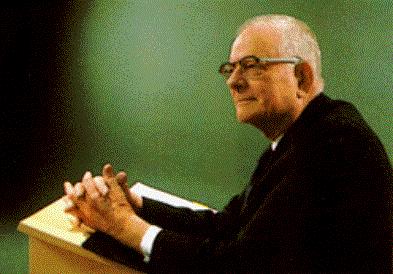The New Economics for Industry, Government, Education (1993)
Famous W. Edwards Deming Quotes
“The worker is not the problem. The problem is at the top! Management!”
Cultural Transformation Study Guide http://forecast.umkc.edu/ftppub/ba541/DEMINGLIBRARY/DLVol24-25.PDF Accessed December 19, 2006
The New Economics for Industry, Government, Education (1993)
Source: Out Of The Crisis (1982), p. 2
Source: Out Of The Crisis (1982), p. 23 (Point 5 from the "Condensation of the 14 Points for Management" presented in Chapter 2)
Source: Quality, Productivity and Competitive Position, (1982), p. i; Preface
W. Edwards Deming Quotes
The New Economics for Industry, Government, Education (1993)
The New Economics for Industry, Government, Education (1993)
The New Economics for Industry, Government, Education (1993)
If Japan Can...Why Can't We? (1980)
“Defects are not free. Somebody makes them, and gets paid for making them.”
Source: Out Of The Crisis (1982), p. 11
“Blame the process, not the people.”
Deming Seminar, Alexandria, Virginia, 19-22 January 1992 http://ltojconsulting.com/wp-content/uploads/2014/01/Deming-quotes.pdf
The Deming of America, Documentary broadcast on the PBS network (1991)
Deming: The Way We Knew Him http://books.google.com/books?id=VKBz5RW5yFcC&pg=PA125&dq=%22learning+is+not+compulsory%22+%22+survival%22&hl=en&sa=X&ei=fcqtUtH0BYbioATs44HQAw&ved=0CEwQ6AEwBjgy#v=onepage&q=%22learning%20is%20not%20compulsory%22%20%22%20survival%22&f=false (1995)
This quote is often cited as “Learning is not compulsory... neither is survival.”
We are of course talking here about a man-made system.
The New Economics for Industry, Government, Education (1993)
“Uncontrolled variation is the enemy of quality.”
Attributed to Edward Deming (1980) in: Chang W. Kang, Paul H. Kvam (2012) Basic Statistical Tools for Improving Quality. p. 19
Source: Quality, Productivity and Competitive Position, (1982), p. 352–353
The New Economics for Industry, Government, Education (1993)
“Quality comes not from inspection, but from improvement of the production process.”
Source: Out Of The Crisis (1982), p. 29
“What is the variation trying to tell us about a process, about the people in the process?”
The New Economics for Industry, Government, Education (1993)
“... the principle that where there is fear, there will be wrong figures....”
The New Economics for Industry, Government, Education (1993)
Source: Out Of The Crisis (1982), p. 175
“In God we trust. All others must bring data.”
Earliest attestation 1978; see Statistics.
Frequently attributed to Deming; it appears in The Deming Management Method, by Mary Walton, 1986, p. 96 https://books.google.com/books?id=4tPlxq76ssYC&pg=PA96&dq=%22in%20god%20we%20trust.%20all%20others%20must%20use%20data.%22, without any attribution, to Deming or anyone else:
Source: “In God we trust. All others must bring data” http://www.barrypopik.com/index.php/new_york_city/entry/in_god_we_trust_all_others_must_bring_data, Barry Popik, The Big Apple, October 19, 2015
Source: Misattributed, Chapter 20: Doing It with Data: "In God we trust. All others must bring data." If there is a credo for statisticians, it is that.
The New Economics for Industry, Government, Education (1993)
The New Economics for Industry, Government, Education (1993)
The New Economics for Industry, Government, Education (1993)
Source: Out Of The Crisis (1982), p. 99
The New Economics for Industry, Government, Education (1993)
Source: Quality, Productivity and Competitive Position, (1982), p. i; Preface
Source: Quality, Productivity and Competitive Position, (1982), p. 101
Source: Out Of The Crisis (1982), p. 134
Source: Out Of The Crisis (1982), p. 139
